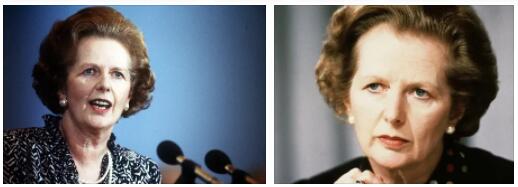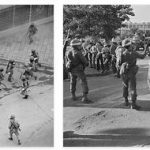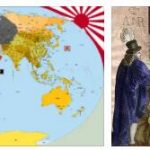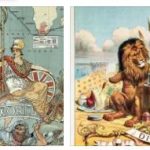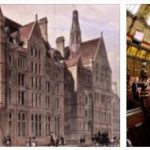In the general election in early May 1979, the Conservative Party, which has been politically led by M. Thatcher since 1975, won a major election; it received 339 and the Labor Party 268 seats.
With a strict austerity program (especially dismantling of the welfare state), accompanied, among other things. by changing the tax system, the Thatcher administration tried to overcome the recession in the economy but accepted rising unemployment; it broke with the previously practiced intervention and subsidy policy in favor of a rigorous restriction of government spending and activation of private investment capital. With the Employment Act of 1980, the government sought to curtail the legal powers of the trade unions (including a ban on sympathy strikes). In the face of strong dissatisfaction among racial and ethnic minorities, serious unrest broke out in several industrial cities in 1981.
According to Naturegnosis, the strong radicalization in the Labor Party under the leadership of M. Foots (1980-83) led to internal party struggles, in the course of which the social democratically oriented members (inter alia D. Owen, S. Williams, William Thomas Rodgers [* 1928], R. Jenkins) left the party and founded the Social Democratic Party (SDP) in 1981; this concluded with that of D. Steel Liberals led an electoral alliance that attempted to assert itself in the subsequent elections as the “third” political force in the British party spectrum (after the 1988 merger of a large part of the SDP with the Liberals to form the Social and Liberal Democrats [renamed Liberal Democrats in 1989] took place in 1990 the dissolution of the remaining SDP). Based on the position of the Conservatives, which had been established in the elections of 1983 and 1987, M. Thatcher pursued her domestic political course. The leader of the Labor opposition was N. Kinnock 1983-92 (his successor 1992-94 J. Smith).
In terms of foreign policy, Great Britain and Northern Ireland continued the process of decolonization with the release of Rhodesia (since 1980 Zimbabwe) and many small areas of the Caribbean to independence. After the occupation of the Falkland Islands and South Georgia by Argentine troops, the Thatcher government restored British rule over these areas in the Falklands War (1982). In 1984 a British-Chinese agreement on Hong Kong was concluded. Since the formulation of the NATO double decision (1979) and its implementation, the Thatcher administration sought, particularly in close agreement with the USA, to urge the USSR to reduce its weapons potential; it has supported Soviet-American disarmament efforts since the mid-1980s (including the INF Treaty of 1987); however, the UK medium-haul potential remained. In January / February 1991 Great Britain and Northern Ireland participated in the anti-Iraq coalition to liberate Kuwait.
The introduction of a poll tax independent of ownership in 1990 caused serious unrest. After several cabinet reshuffles and fierce criticism, also from within the party, of her domestic and economic policy, as well as her rigid European policy, M. Thatcher resigned in November 1990. He was succeeded by J. Major, who abolished the poll tax, but largely continued the previous policy.
In the general election in April 1992, the Conservatives under Prime Minister Major surprisingly won the absolute majority of the seats in the House of Commons with around 42% of the vote, the Labor Party received around 34% and the Liberal Democrats around 18%. Against the background of the ongoing recession, there was a currency crisis in the summer of 1992, which led to the withdrawal of the British pound from the European monetary system in September 1992. After long disputes with the right wing of the Conservatives, Major finally achieved the ratification of the Maastricht Treaty in the form he had negotiated (without the Social Charter) in July 1993 against the opposition of the Labor Party. The intra-party criticism of the majors’ European policy on the part of the “Eurosceptics” or “Euro rebels” (including M. Thatcher), however, continued; The course in European policy continued to be characterized by only hesitant integration into pan-European bodies with a strong emphasis on national interests.
While the prestige of the Major government was waning, the Labor Party was on the rise, v. a. after the election of T. Blair as party chairman in July 1994. In order to appeal to broad sections of the electorate, he initiated a modernization of the party and its opening to the bourgeois center.
After hopeful attempts to resolve the Northern Ireland conflict, the hesitant understanding came about in the face of British demands (especially for the disarmament of the IRA as a prerequisite for the participation of the Sinn Féin in the negotiations) and after the rescission of the armistice of August 31, 1994 by the IRA (February 9, 1996) and renewed outbreaks of violence in Northern Ireland in the summer of 1996 again stalled.
British troops took part in the UN peacekeeping mission in the Bosnian conflict from 1992; Since 1994 Great Britain and Northern Ireland belonged to the international contact group for the development of a peace and partition plan for Bosnia (Geneva Yugoslavia Conference, Geneva Conferences) and participated in the multinational force led by NATO for the implementation of the peace agreement for Bosnia and Herzegovina.
